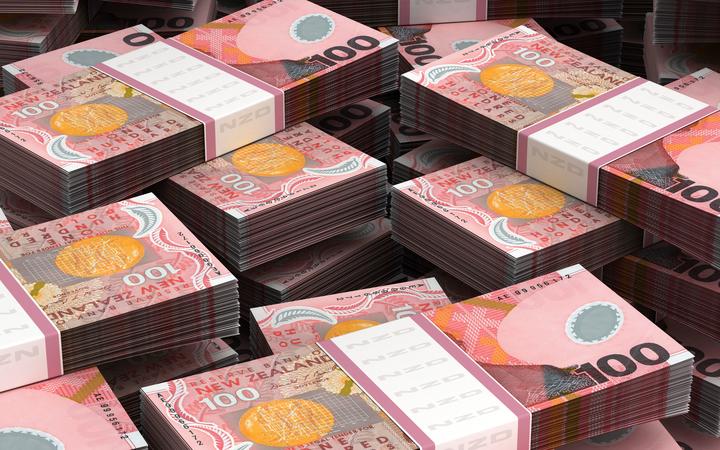You may have heard the phrase penny for a pound, now a new term has been coined - the 'what the hell effect'.
Researchers at New York University's Stern School of Business have been studying the 'Denomination Effect' and why consumers spend more than they normally would once they've broken a large note like $50 and $100.
The Denomination Effect is a form of psychological bias relating to money, it proposes that consumers are less likely to spend larger notes ($100) than the equivalent value in smaller denominations (five $20 notes).
Brainchild of the study, professor Priya Raghubir, explained to Jim Mora the thinking behind it.
"Once I break the hundred dollar bill I feel I would spend all of it which is the one reason why I want to hold onto it. We found that once people had made the decision to spend, had decided to break the bill, their spending was actually higher - the in for a penny in for a pound kind of effect where once you break the bill then 'what the hell, I'll just spend the whole thing', so it's called the what the hell effect.
"There was something also about the physical disgust which was associated with smaller denominations - they're likely to be in circulation more, people want them out of their wallets and so they try and get rid of these crumpled smaller denominations and hold on to the clean and crisp larger denominations."
Professor Raghubir undertook the research both in China and the USA and also looked at how it worked with smaller amounts of money on items such as lollies.
"We did a study in Omaha where we gave people $5 in one of three forms; one was a $5 bill, the second was five $1 notes, and the third was five $1 coins. Unsuspecting drivers who came to a gas station were asked whether they could answer three questions about the car they drove and the gas they used, and in exchange for that we would give them $5.
"It was just an excuse to give people $5 in one of three forms and then they went in to the little convenience store at the gas station and in that study we found that there was no difference between five $1 coins or five $1 bills, but the spending for both of those was higher as compared to the single $5 bill."
Professor Raghubir says similar trains of thought can be found in the way consumers use credit cards as well as online 'buy now, pay later' services such as Afterpay.
"There's a very powerful theory in economics which talks about the pain associated or the dis-utility associated with paying sums of money. Whenever I do the pay small (option) it's very tempting to just place things on my credit card and then that disassociates them from the pain associated with paying at that moment.
"When you are paying with cash, the memory traits associated with how much is spent is much stronger. The pain with paying with cash is rated to be much higher than the pain of paying with debit cards and/or credit cards which are around the same, even though debit cards should be like cash, because they are really cash, but from a consumer conception point of view (debit cards) are treated more like credit cards because they feel more like credit cards - you don't have that salience of pain when you pay with them."
Professor Raghubir also has strong views on tipping - a practice that has been used in the United States for centuries and that is slowly creeping into the local economy in New Zealand through services such as Uber and its food delivery subsidiary.
She says the idea of gratuity is illogical because of its selectiveness and that it is becoming more of a problem for consumers.
"There is this tip creep that is being written about a lot in the United States and it's happening a lot of places where tipping was not the norm and tipping has now started becoming the norm.
"For example if you go to a coffee shop and you ask the cashier to hand you a pastry that is behind the counter and there is no way you can pick up that pastry because it's behind the counter they still expect a tip for handing that to you which is absolutely ridiculous because there's no service which has gone on, they're simply taking your money.
"I'll give you another example, I recently made a donation to the campaign of one of the Democratic candidates for the presidency in the United States and the request came in through, I think, a text message during one of the democratic debates and immediately after I had made the donation to the political party, the people asking for the donation asked whether I'd consider tipping them 20 percent and I was like 'no, no I would not, you're running a telemarketing campaign to get contributions, where is the tip involved?' So in the US it has become crazy, absolutely crazy."





